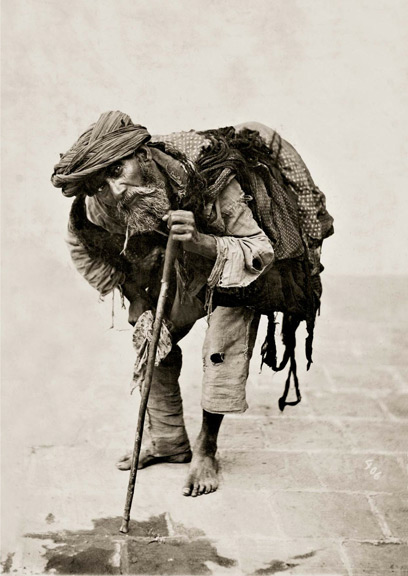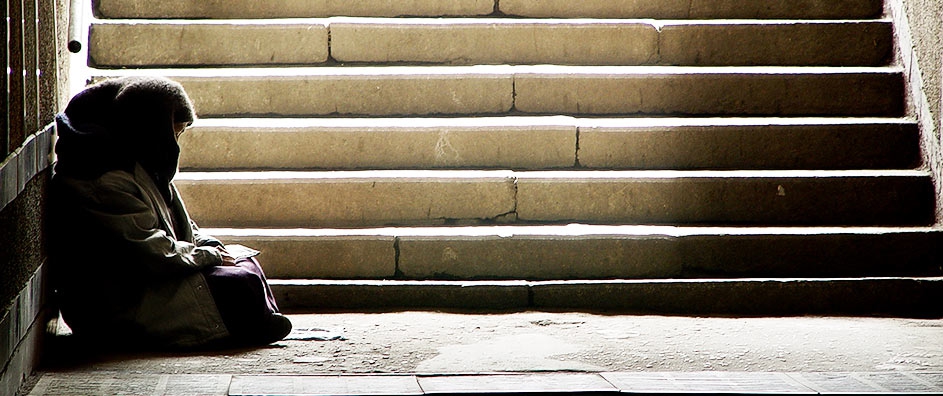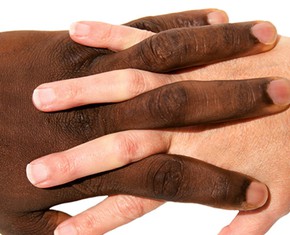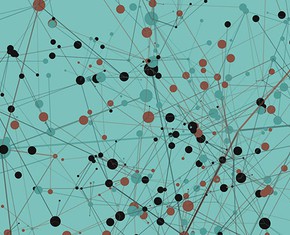The views expressed in our content reflect individual perspectives and do not represent the authoritative views of the Baha'i Faith.
O SON OF SPIRIT!
Vaunt not thyself over the poor, for I lead him on his way and behold thee in thy evil plight and confound thee for evermore. – Baha’u’llah, The Hidden Words, p. 10.
The Baha’i teachings have enormous sympathy, care and concern for poor people. Like Buddhism and Christianity and every other great Faith, Baha’is believe that the poor deserve, require and benefit from our love and service.
In many ways, our contemporary world, especially in some capitalist societies, treats poor people with a distinctly Darwinian disdain, as though they deserve their lot. Baha’u’llah teaches the exact opposite:
If ye meet the abased or the down-trodden, turn not away disdainfully from them, for the King of Glory ever watcheth over them and surroundeth them with such tenderness as none can fathom except them that have suffered their wishes and desires to be merged in the Will of your Lord, the Gracious, the All-Wise. O ye rich ones of the earth! Flee not from the face of the poor that lieth in the dust, nay rather befriend him and suffer him to recount the tale of the woes with which God’s inscrutable Decree hath caused him to be afflicted. By the righteousness of God! Whilst ye consort with him, the Concourse on high will be looking upon you, will be interceding for you, will be extolling your names and glorifying your action. – Gleanings from the Writings of Baha’u’llah, pp. 314-315.
And again:
Know ye that the poor are the trust of God in your midst. Watch that ye betray not His trust, that ye deal not unjustly with them and that ye walk not in the ways of the treacherous. – The Proclamation of Baha’u’llah, p. 9.
In fact, Baha’u’llah exemplified this Baha’i teaching. Born into a noble family that traced its ancestry back to the great dynasties of Persia’s imperial past, Baha’u’llah declined the ministerial career in government his father and relatives expected him to take up. Instead, as a young man Baha’u’llah chose to devote his energies to a range of humanitarian causes and philanthropies, which by the early 1840s earned Him widespread renown in Persia as the “Father of the Poor.” Relatives worried that Baha’u’llah would expend his family’s resources completely, because of his sacrificial giving to the poor in his country.
 But everything changed after 1844, when Baha’u’llah became one of the leading advocates of the nascent Babi Faith. That revolutionary new movement changed the course of Persia’s history. It altered the lives of millions of people, boldly challenged the corrupt Islamic hierarchy of the nation and resulted in forty years of exile, torture and imprisonment for Baha’u’llah as he became the founder of the Baha’i Faith.
But everything changed after 1844, when Baha’u’llah became one of the leading advocates of the nascent Babi Faith. That revolutionary new movement changed the course of Persia’s history. It altered the lives of millions of people, boldly challenged the corrupt Islamic hierarchy of the nation and resulted in forty years of exile, torture and imprisonment for Baha’u’llah as he became the founder of the Baha’i Faith.
Today, all around the globe, the Baha’i Faith has an enormous emphasis on addressing, dealing with and solving world poverty.
In many ways, though, Baha’is think of poverty differently than most people. Material poverty – the lack of food, water, work, basic life resources – can have a powerful negative impact, and Baha’is work to alleviate and eliminate material poverty by bringing Baha’u’llah’s progressive teachings into their lives and the lives of others; and by applying the Baha’i principles to the world’s problems.
But the Baha’i teachings describe spiritual poverty – the lack of joy, happiness, a meaningful life, the radiance of the soul, and belief in a loving Creator – as an even more dire condition:
The essence of understanding is to testify to one’s poverty, and submit to the will of the Lord, the Sovereign, the Gracious, the All-Powerful….
The essence of charity is for the servant to recount the blessings of his Lord, and to render thanks unto Him at all times, and under all conditions.
The essence of wealth is love for Me. Whoso loveth Me is the possessor of all things, and he that loveth Me not is, indeed, of the poor and needy. This is that which the Finger of Glory and Splendor hath revealed . . . – Baha’u’llah, Baha’i World Faith, p. 141
That spiritual poverty – described here by Baha’u’llah as a lack of love – can affect us all. Perhaps that’s what Baha’u’llah means in the mysterious final passage of this Hidden Word when he says, from the point of view of the Creator, that He will “confound thee for evermore.” He expresses that same idea in a prayer, addressing God and saying “confounded be the soul that seeketh the things that are contrary to Thy will.” – Prayers and Meditations by Baha’u’llah, p. 298.
If we follow the will of God – that we love each other, and that we love all of humanity – the spiritual riches love creates will sustain us, in this life and in the next. Baha’u’llah promises that the true wealth of our inner life, which cannot be taken away when this material existence ends, will stay with us throughout eternity.
















Comments
Sign in or create an account
Continue with Googleor